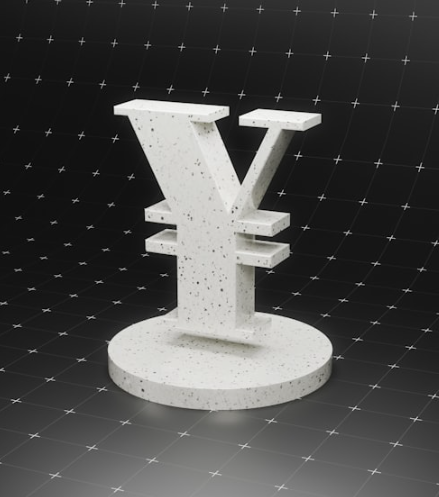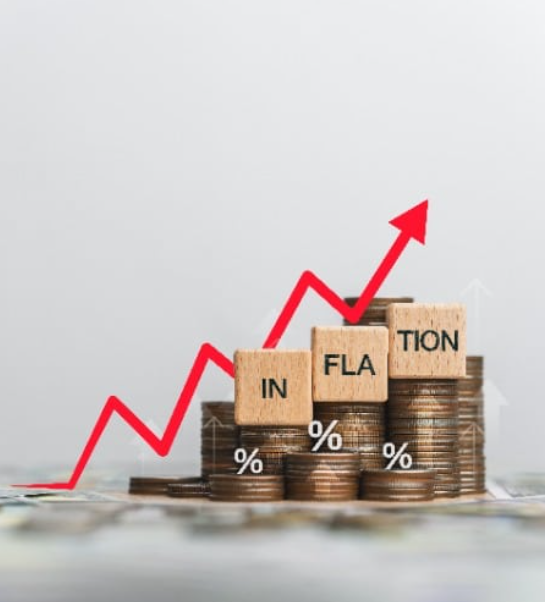Inflation is a force that erodes the purchasing power of your money over time. As prices for goods and services rise, the same amount of cash can buy fewer items, which reduces your ability to maintain your standard of living. To combat the effects of inflation and preserve your wealth, it’s important to focus on investments that grow at a rate faster than inflation. Let’s explore how inflation impacts your finances and how you can counter it effectively.
What Is Inflation?
Inflation refers to the rate at which prices for everyday goods and services increase. As prices rise, the value of money decreases because it can no longer purchase as much as it once could. This is often measured by the Consumer Price Index (CPI), which tracks changes in the price of a set of commonly purchased goods and services. Inflation has been a consistent part of modern economies, although its rate varies over time, and it directly impacts your purchasing power.
The Impact of Inflation on Purchasing Power
One of the most significant effects of inflation is the loss of purchasing power. If inflation outpaces the returns on your cash, the real value of your money decreases. This means that over time, you will be able to buy less with the same amount of money.
For instance, if inflation averages 3% per year, $100 will lose about $60 in purchasing power after 30 years, leaving it with the equivalent value of just $40 in today’s terms. This gradual reduction in value shows how inflation can steadily chip away at your wealth if not properly addressed.
The Pitfall of Cash and Money Market Deposits
While cash is necessary for short-term needs and liquidity, it’s not an effective long-term solution for preserving wealth in an inflationary environment. Money market accounts and cash savings typically offer low-interest rates, which may not keep up with rising inflation. As a result, holding significant cash reserves can result in the erosion of your wealth over time, as the returns from these low-risk assets fail to outpace inflation.
How to Combat Inflation with Investments
To protect and grow your wealth in the face of inflation, you need investments that grow at a rate higher than inflation. Fortunately, there are several types of assets that can help.
- Inflation-Linked Investments: Some investments are directly tied to inflation. For example, U.S. Treasury Inflation-Protected Securities (TIPS) are designed to adjust with inflation, ensuring that your purchasing power is preserved. These bonds can provide a hedge against rising prices by adjusting the principal value in line with inflation.
- Real Assets: Certain assets, like real estate and infrastructure, can also offer protection against inflation. These assets often have the ability to pass on rising costs to consumers, such as through higher rent or increased charges, making them valuable during inflationary periods.
- Stocks and Equities: Equities generally offer higher returns than bonds or cash, and they tend to grow faster than inflation over the long term. While stocks come with more risk, they have historically outpaced inflation and can be a powerful tool for building wealth. Companies can adjust their prices in response to inflation, thereby increasing their revenue and profits.
- Other Investment Options: Bonds and alternative assets can also play a role in protecting against inflation. Certain types of bonds, especially those with longer durations, may provide returns that exceed inflation rates. However, these investments often come with varying levels of risk, so it’s important to consider them as part of a well-diversified portfolio.
The Power of Diversification
One of the best ways to manage inflation risk is by diversifying your investments. A mix of assets — including inflation-linked bonds, real estate, stocks, and alternative assets — can help balance risk while maintaining growth potential. Diversification spreads risk across various asset classes, reducing the likelihood that any single investment will underperform during periods of high inflation.
Conclusion
Inflation can erode the value of your cash holdings, making it important to invest in assets that grow faster than inflation. By focusing on inflation-linked bonds, real estate, equities, and a well-diversified portfolio, you can counter the effects of inflation while growing your wealth over time. The key is to take a long-term approach and make investment choices that align with your financial goals, risk tolerance, and need to preserve purchasing power.













